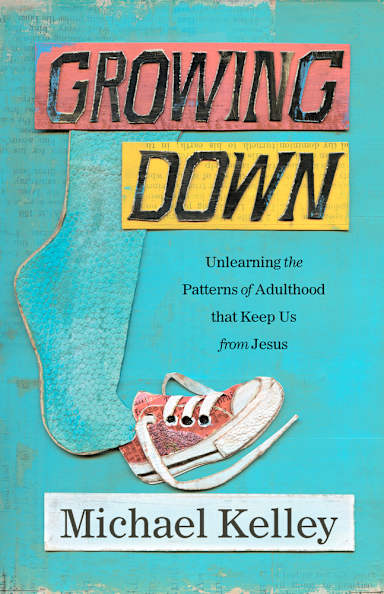I'll admit that three out of every five times we sit around the kitchen table in the morning for family devotion it's like herding cats. But then there are the fourth and fifth times. Then there are the times when the Spirit of God shines through the mist of all the competing attention grabbers of the world.
Funny thing is that most of the time, at least of late, I feel like those moments of clarity are just as impactful for me as they are for the kids. Almost like God has something for me in these devotions, too. Huh…
Take last week, for example. Our journey through the Old Testament has, at last, led us to the book of Daniel—great stories. Kings eating grass, crazy dreams, pet lions, and statues as tall as buildings. These are good moments for the eight, five, and two-year-olds.
In reading the story of Shadrach, Meshach, and Abednego, we asked the kids to think about idolatry. In this story, of course, the idol was obvious—it was a huge, golden statue. But idols today aren't quite as overt. So we asked them, "Guys, what is an idol?"
We've had this question before. They knew the answer: "Anything you love more than God." We nodded in agreement, but then followed up with another series of questions:
"That's what an idol is. But are you going to be asked to worship a golden statue today at school?"
Snicker. Snicker: "No, Daddy."
"But people still have idols today, right?" They were on top of this one, too.
"Yeah. Like money. Or the TV." And then we broke off into a series of ridiculous things that could be idols—everything from a puppy dog to a burrito. The wheels were coming off quickly; time to wrap this up:
"Okay. So those all might be idols. But how do you know if something is an idol? How do you know if you love something more than God?"
There was a surprising silence here. I silently congratulated myself on my superb question asking, and then I got hammered between the eyes with an eight year old's articulation of truth the way only an eight-year-old can articulate it:
"You know it's an idol if you think you could never be happy without it."
Bam. There it was. And he was right. The more I thought about it—and I've thought about a lot since he said it—I see just how right he is.
Money, sex, power, job, family—which of these things do I hold in such esteem that I don't believe I could ever be happy without them? There are more of them than I'd care to admit. Now I want to be careful here, lest we spend an inordinate amount of time visualizing our lives without these things, especially if these "things" are actually "people." And I also want to acknowledge that, especially in the case of people, there's something unhealthy and maybe even sadistic about weighing each person in your life to see if you could be truly happy without them.
But I also think there was much truth in that answer. True contentment; true satisfaction; true worth; true joy; true fulfillment—these are only to be found in Christ. All other things serve to magnify His greatness and push our souls upward in grateful thanks and praise. And if they were all taken away? If there was nothing? If there was no one?
There would still be Jesus.
True maturity, according to Jesus, is entering the kingdom of heaven like a child. In Growing Down, Michael Kelley wrestles with Jesus’ words that the kingdom of heaven belongs to the likes of little children. If that is true, then we must grow down in characteristics that make us functional and effective adults, if we want to truly grow up in Christ.

